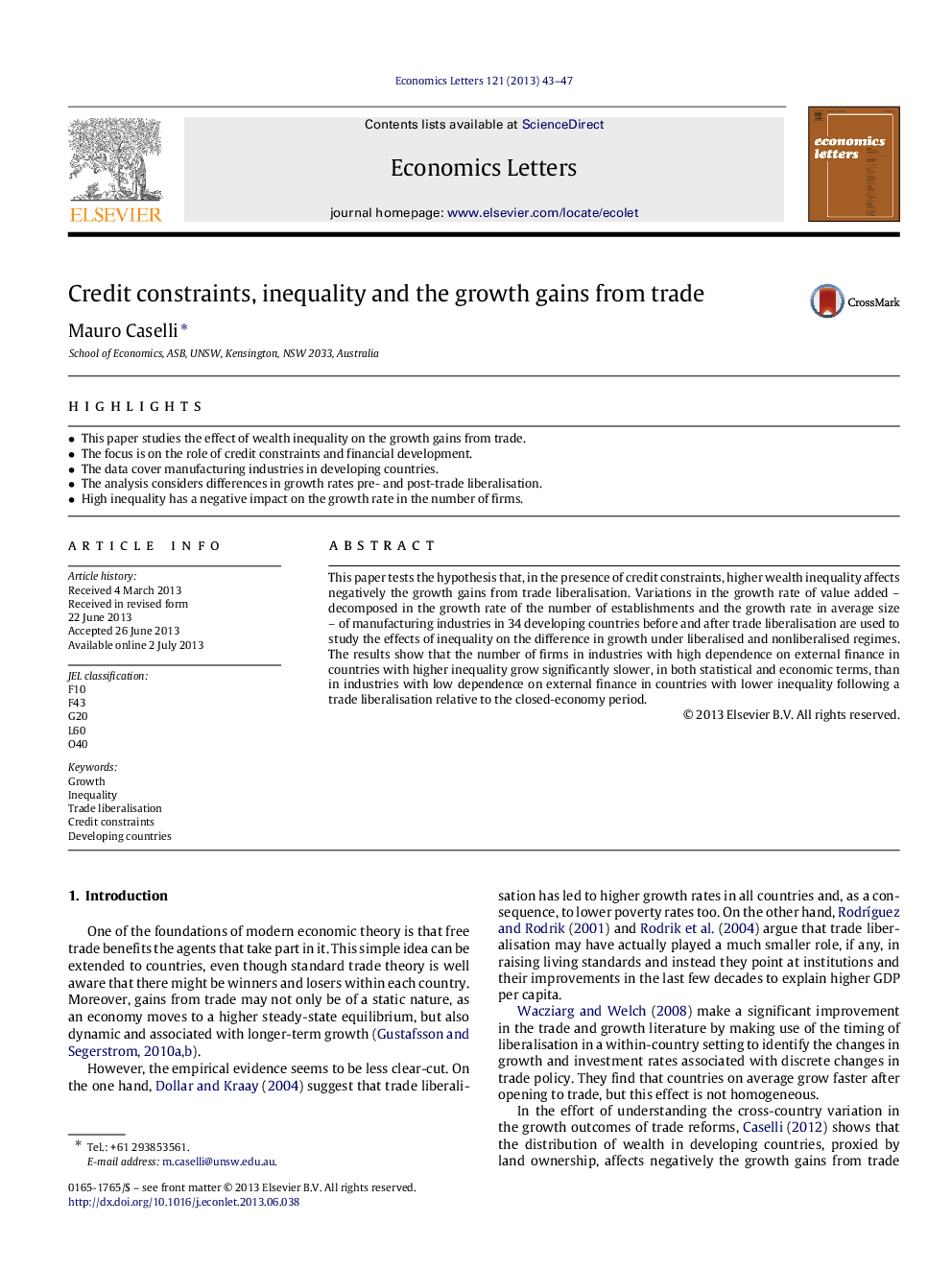| Article ID | Journal | Published Year | Pages | File Type |
|---|---|---|---|---|
| 5059337 | Economics Letters | 2013 | 5 Pages |
Abstract
This paper tests the hypothesis that, in the presence of credit constraints, higher wealth inequality affects negatively the growth gains from trade liberalisation. Variations in the growth rate of value added-decomposed in the growth rate of the number of establishments and the growth rate in average size-of manufacturing industries in 34 developing countries before and after trade liberalisation are used to study the effects of inequality on the difference in growth under liberalised and nonliberalised regimes. The results show that the number of firms in industries with high dependence on external finance in countries with higher inequality grow significantly slower, in both statistical and economic terms, than in industries with low dependence on external finance in countries with lower inequality following a trade liberalisation relative to the closed-economy period.
Related Topics
Social Sciences and Humanities
Economics, Econometrics and Finance
Economics and Econometrics
Authors
Mauro Caselli,
